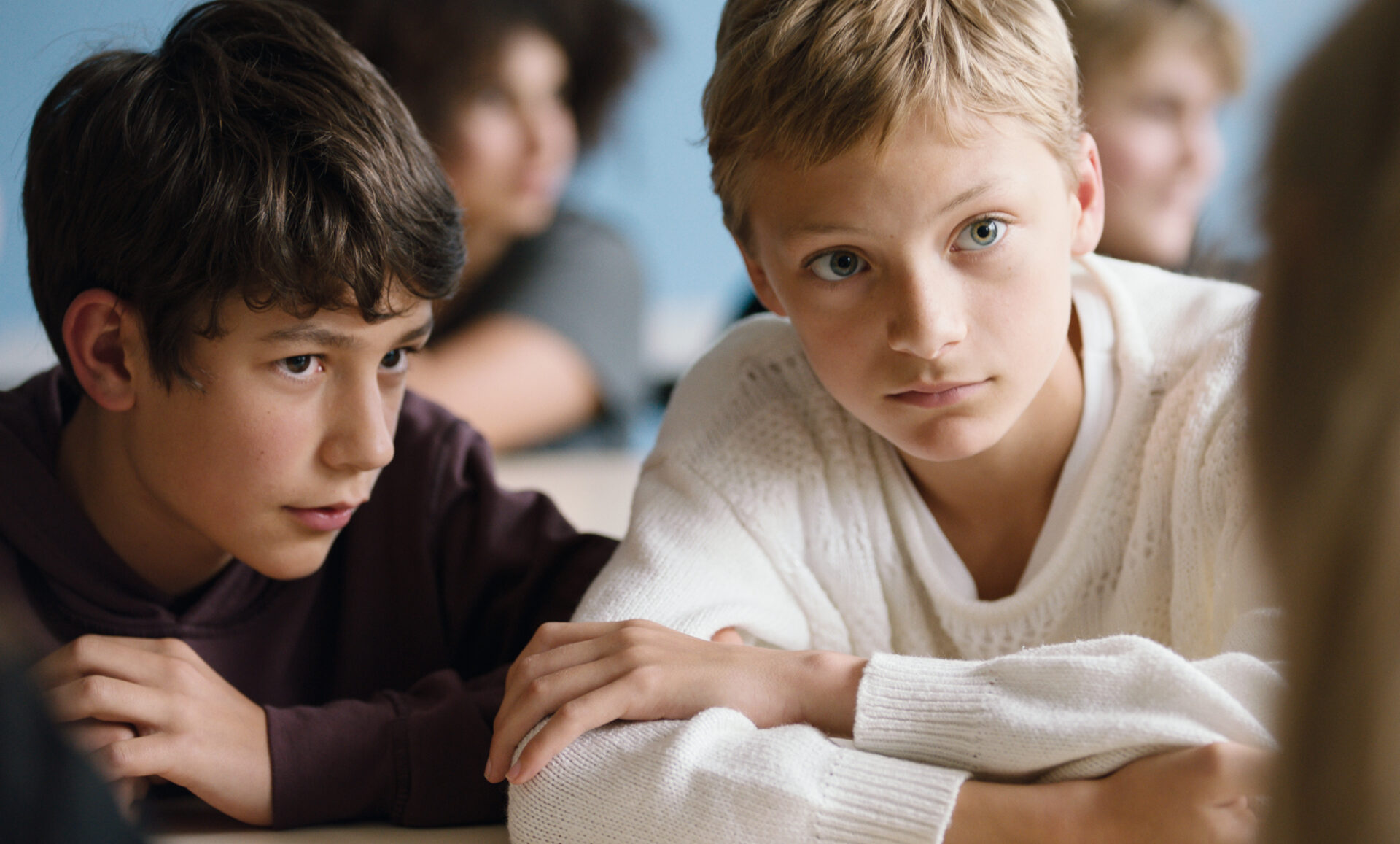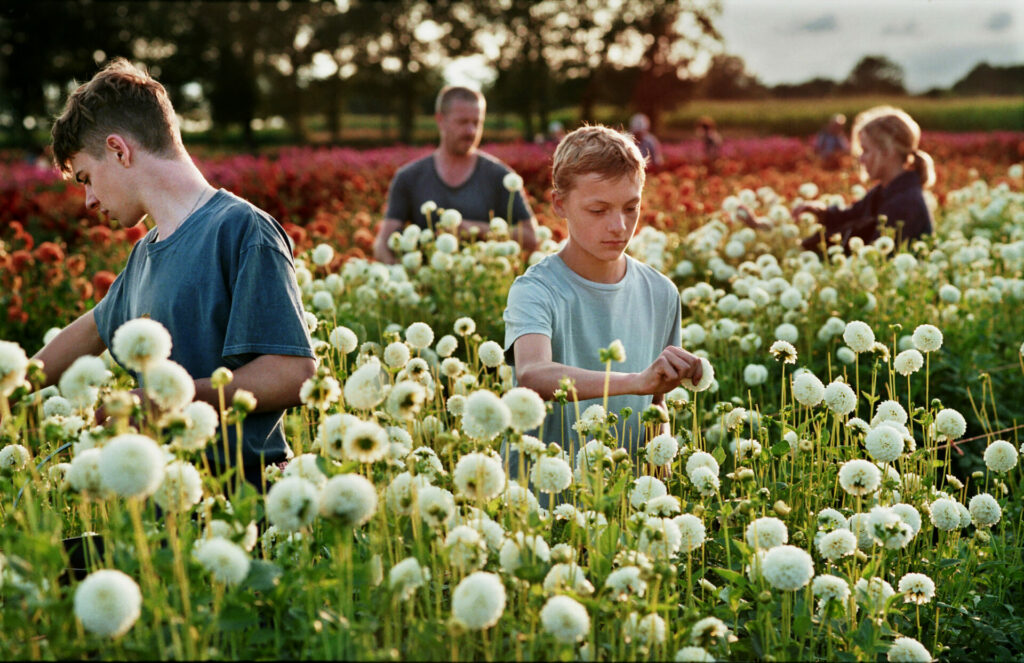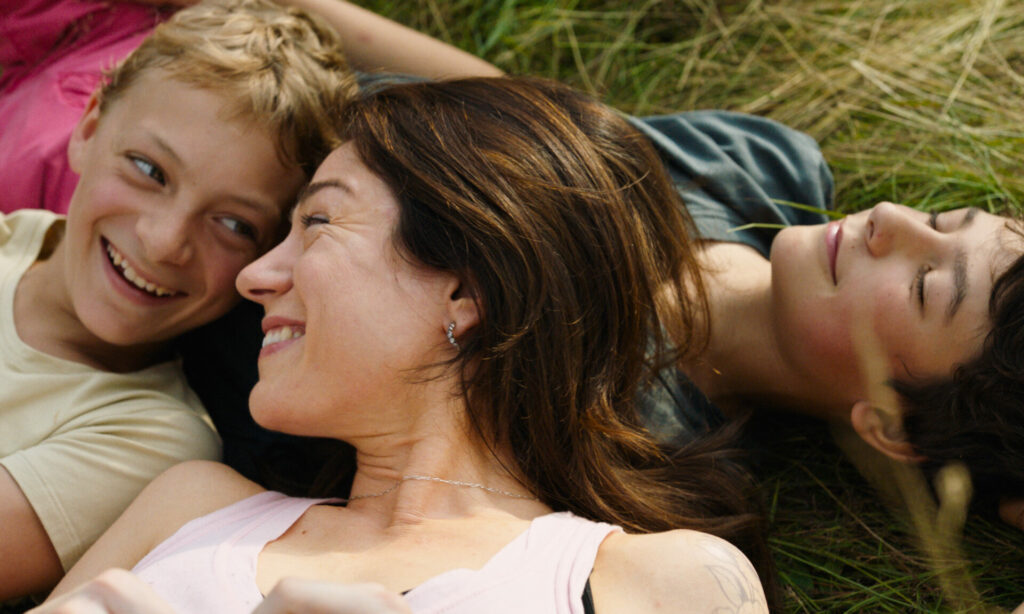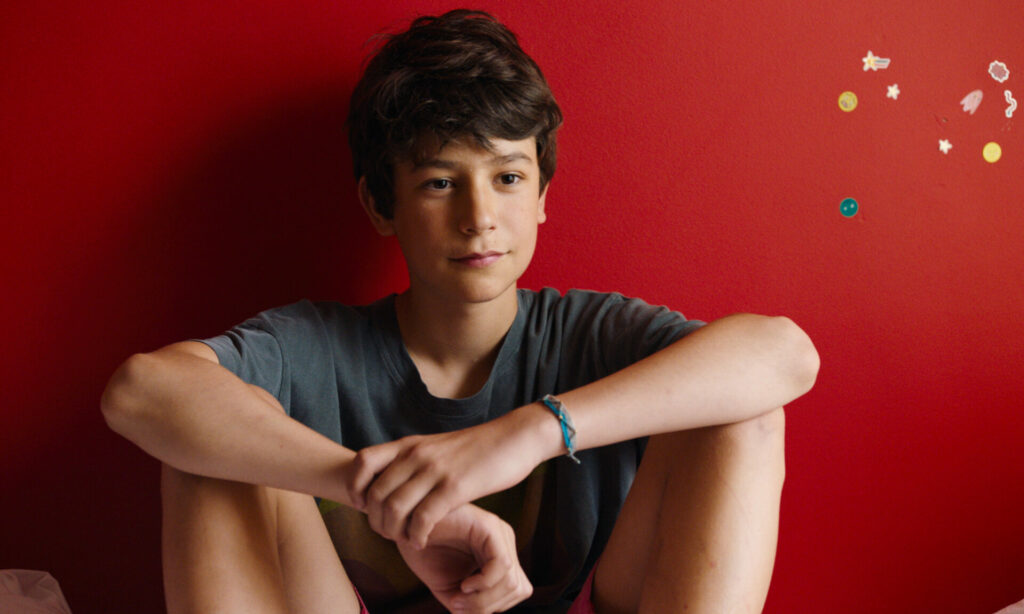Close review: Sublime, profoundly moving and Oscar-nominated tale of teenage disconnect
In partnership with MUBI

“Are you together?”
So asks a schoolmate of 13-year-old best friends Léo (Eden Dambrine) and Rémi (Gustav De Waele) in Close, a moving coming of age drama from Belgium nominated for this year’s Best International Feature Oscar.
This puppyish pair share the silly humour and crackling chemistry of kids who’ve known each other forever. They’ve just whiled away a summer picking flowers and riding bikes through their corner of idyllic Flemish countryside.
Suffice to say, there will be no more of that.
Note: the question isn’t “are you gay?” but “are you together?” For such a pivotal moment in the film, it’s an easily missed line of dialogue – and one asked with apparent indifference, to which the boys, on the surface anyway, coolly under-react.

Just as you wonder if kids today are over this sort of thing, more aggressive interrogations follow. Enough to trigger memories of the painful initiation into the pecking order of ‘big school’… Of the death knell-like commencement of a new academic year. Of homophobic bullying that can begin with the immediacy of a starter pistol.
With platonic physical intimacy reframed, shame sets in. Momentous emotions rise to the fore. The boys’ previously joyous connection turns sour and unravels at warp speed. One cruelly recoils from the other, and the ensuing fallout is of Greek tragedy-level proportions.
There are teen hissy fits aplenty. But American high school-style melodrama this is not. Instead, tempered by a deceptively simple plot and documentary-like intimacy, Close shoots for Boyhood-esque realism, and wins.
It remains agonisingly unclear as to what might have been. Are Léo and Rémi in love? Is one of them in love with the other? Might they both fallen in love, eventually? This ambiguity imbues the film’s title – which is rather unarresting, initially – with fascinating complexity. Does ‘close’ pertain to closeness, or closed-ness?
“Queerness, or the possibility of queerness, is far from the focus – instead, it’s a texture, a nuance“
That the film – unlike your average modern blockbuster, smugly teasing LGBTQ representation only to fudge it – distorts clarity around the boys’ relationship feels entirely right. After all, while some kids are sure of who they are at such a young age, others are not. Others will never set on a fixed identity anyway. And all journeys are valid, regardless.
As such, the film’s LGBTQ subtext is so exquisitely indistinct as to barely be there at all. Perhaps, depending on your reading, it isn’t. Interestingly, there are parallels to be drawn with The Banshees of Inisherin, Disney’s Oscar-tipped drama about a friendship between adult men, and a falling out so seismic it invites questions from a local priest.

So too the enigma that is Aftersun. (Which, like Close, is distributed by MUBI.) This one’s about a loving father’s unnamed and barely explored mental torment, remembered in fragments by his daughter and vaguely implied to be connected to his sexuality. In all these films, queerness, or the possibility of queerness, is far from the focus. Instead, it’s a texture, a nuance. So too even in the more overtly LGBTQ-themed films of recent years, including Everything, Everywhere All at Once and Tár.

What Close is unequivocally about, however, is love between boys. And the characters’ response to that love being perceived as gay and therefore wrong. That neither child is emotionally nor verbally equipped to withstand this attention is revelatory. And this, in relatively LGBTQ-friendly Belgium, of all places. Imagine such a scene in Russia, land of the ‘Gay Propaganda Bill’. Or Florida, where Governor Ron DeSantis has signed in the ‘Don’t Say Gay’ law, banning classroom discussion of sexual orientation.
Dhont and casting director Sebastian Moradiellos show an eye for casting fascinating actors. Émilie Dequenne plays Sophie, Rémi’s mother and Léa Drucker plays Nathalie, Léo’s mother. Both are heart-breaking, and surrender the spotlight for their younger co-stars.
Both Dambrine and De Waele, meanwhile, boast the kind of dazzling faces and hauntingly tranquil energies that make their every scene resemble a historical painting. I initially feared Dambrine’s intensity would overwhelm the film. By its end, was impressed by his and Dhont’s prudence in harnessing such raw energy. De Waele, meanwhile, is luminescent throughout. Like Dambrine, he can summon glacial stillness at whim. But far from being one dimensional, he delivers a furious sucker-punch partway through, with an emotional breakdown in the playground: all clenched fists, gritted teeth and exclamations of pure desperation. On some level, it seemed to be real.
It may have won the Grand Prix at the 2022 Cannes Film Festival, but is this really enough awards season love? Not even close!
For more information about Close, visit mubi.com/close.
Close is in cinemas Friday, and streaming exclusively on MUBI from April 21.
